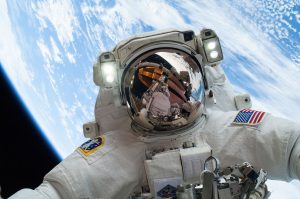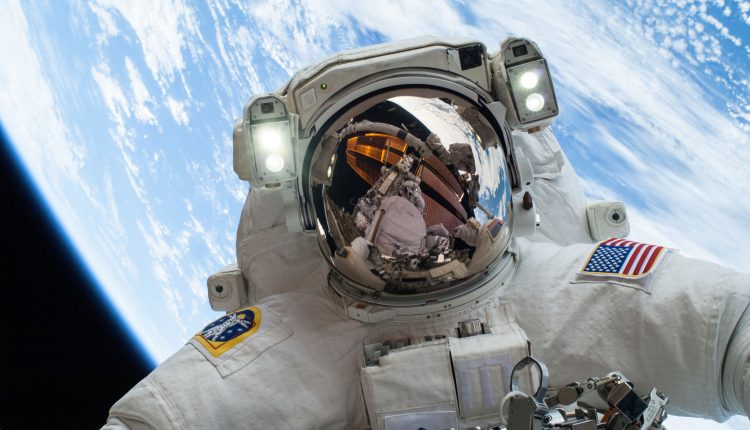An astronauts’ health is a vital concern to space agencies like NASA and the European Space Agency (ESA). As it turns out, something unusual happens to an astronauts’ skin while they are up in space — it actually gets thinner.
If agencies want to send humans up to Mars or other planets soon, it’s important that they discover why and how this happens, as well as how to prevent and treat it.

A team of German scientists, led by Professor Karsten Koenig from the Department of Biophotonics and Laser Technology at Saarland University, is now doing some deep research into the condition. The scientists are using “high-resolution skin imaging tomography” to examine the skin cells of astronauts before and after a trip into space.
The developers of the laser technology say the spatial resolution is a thousand times higher than that of ultrasonic devices, according to Reuters.
The scientists employ femtosecond laser pulses to scan an astronauts’ skin and retrieve signals from the skin, like fluorescence and second harmonic generation to build up images and take an accurate, high-resolution look into the skin.
“The resolution is a factor of one thousand (times) better than ultrasound. So now you get the information without taking biopsies; normally you slice them, you stain them, and then a pathologist would look through these sections. Now you can get this information in seconds, labor free and with this fantastic resolution,” said Koenig.
NASA and the ESA also would like Koenig and his team to take a look into the effects space travel has on aging since astronauts commonly complain about skin problems.
Only three astronauts have been tested so far, but the team has acquired some interesting results. It appears that there is an increase in collagen in the skin of these astronauts which indicates an “anti-aging” effect on the skin and the living cells of the skin are actually shrinking, which reveals that skin is actually thinning.
These factors pose concerns for long-term space travel, such as missions to Mars.
“We’ve seen the epidermis get thinner by nearly 20 percent. And so far we have no explanation. But this happened within six months; the question is if you go to Mars they need one or two years and we don’t know yet – for sure it’s not so good if the epidermis gets thinner and thinner,” Koenig said.

